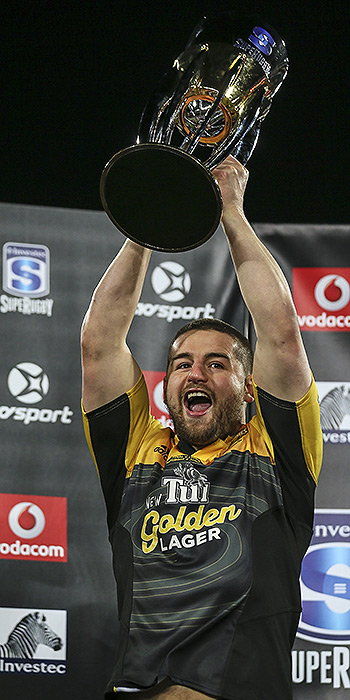Hurricanes title an All Blacks blueprint?
The Lions headed to Wellington for the Final against the Hurricanes with the best attack in Super Rugby, and arguably the most complete set piece – both scrum and line-out – were a definite strength for them.
Coming into the Final, the Lions had scored 81 tries; eleven more than the Hurricanes as the next best team to that point, and at an average of 4.8 tries per game.
The was plenty of talk of how the Lions were playing 'like a New Zealand team', which was probably selling them a bit short; not too many Kiwi sides combine set piece effectiveness with a ruthless breakdown and sheer attacking strike power quite as well as the Lions have in 2016. In fairness, their skill levels and sheer talent is such that they've never really had to.
But for all their abundant attacking ability, the Lions would still have to overcome one literal hurdle: the Hurricanes' defence.
Before the Final, the Hurricanes hadn't conceded a try in two-and-a-half games; 212 minutes in all. After their 20-3 win the secure the Super Rugby title, that total is now as close as doesn't matter to five hours.
It's not like the Lions didn't have chances, either. Both possession and territory were in their favour. They carried more than the 'Canes did, beat more defenders, made more clean breaks, and more offloads, too. But they also conceded more turnovers than the Hurricanes, with straight handling errors making up a large portion of that.
And yes, the wet and wild and windy conditions in Wellington certainly affected their game. Elton Jantjies' kicking game was off all night, whereas Beauden Barrett had such a good read on the conditions, that he perhaps should be presenting the weather.
In truth, Jantjies' kicking issues were a direct result of the pressure applied to him and the Lions' midfield by the Hurricanes' rush defence, the same defensive unit that brought the Chiefs undone the week before, and which completely annihilated the Sharks' midfield in the first week of the finals.
New Zealand teams in recent times have tended to favour the slide defence, or even the reverse umbrella alignment, a kind of up-and-out formation. The Hurricanes' system is new again, and it's new even within this season; they weren't defending like this earlier in the season. In fact, it's debatable that they were defending at all in Round One when the Brumbies put 50 on them.
But the impact is such that the Lions' midfield was essentially taken out of the game. The rush up on his outside also forced some panicked attempted inside balls from Jantjies, which in turn added to the turnovers conceded tally.
Impressive young centre Rohan Janse van Rensburg had been averaging well over 10 metres per run coming into the Final, but was pushed back to about seven-and-a-half metres per run in the Final. And didn't get an offload away. Lionel Mapoe was barely sighted in the Final, and I think the first time I saw Courtnall Skosan for the night was when he was on stage collecting his runners-up medal.
The rush defence completely nullified the Lions attack, and you can't help but wonder if we might have been watching a live trial of a new All Blacks tactic for The Rugby Championship, now just a fortnight away.
England used the tactic to great effect in June to completely nullify the Wallabies, despite the fact the Wallabies scored five tries in the first and third Tests.
Curiously, the Wallabies see those try-scoring feats in the face of excellent defence as confirmation that their ball-in-hand method is indeed the way to play international rugby. And it worked last year, so it'll work again this year, right?
Ask the Lions how that kind of inflexibility worked out.
I can see it now, the All Blacks playing without the ball, more than happy to concede all the possession stats, and instead use the Hurricanes midfield rush to put Bernard Foley and Nico Sanchez and whoever Allister Coetzee decides is best equipped to wear the Springbok N.10, and just counter on the inevitable forced errors.
And think about potential All Blacks midfielders: Ryan Crotty, Malakai Fekitoa, George Moala, and a certain Sonny Bill Williams back from Olympic Sevens duty. All of them good defenders, and all of them more than capable of upping the defensive line speed in the name of pressure.
The Hurricanes proved the folly of the Lions' 'play at all costs' mentality and showed exactly how when the stakes are at their highest, defence still wins overall.
The stakes are about to be their highest for the All Blacks this year. But who will good enough to break the Black Wall?
By Brett McKay
@BMcSport
@rugby365com
* Brett McKay is an Australian rugby writer and commentator, who has sat through more Bledisloe Cup and World Cup Final losses than any human should have to endure, and is desperately hoping for a change of luck soon. For regular musings on rugby, sport, and all manner of life's trivialities, you'll find Brett on Twitter at @BMcSport









